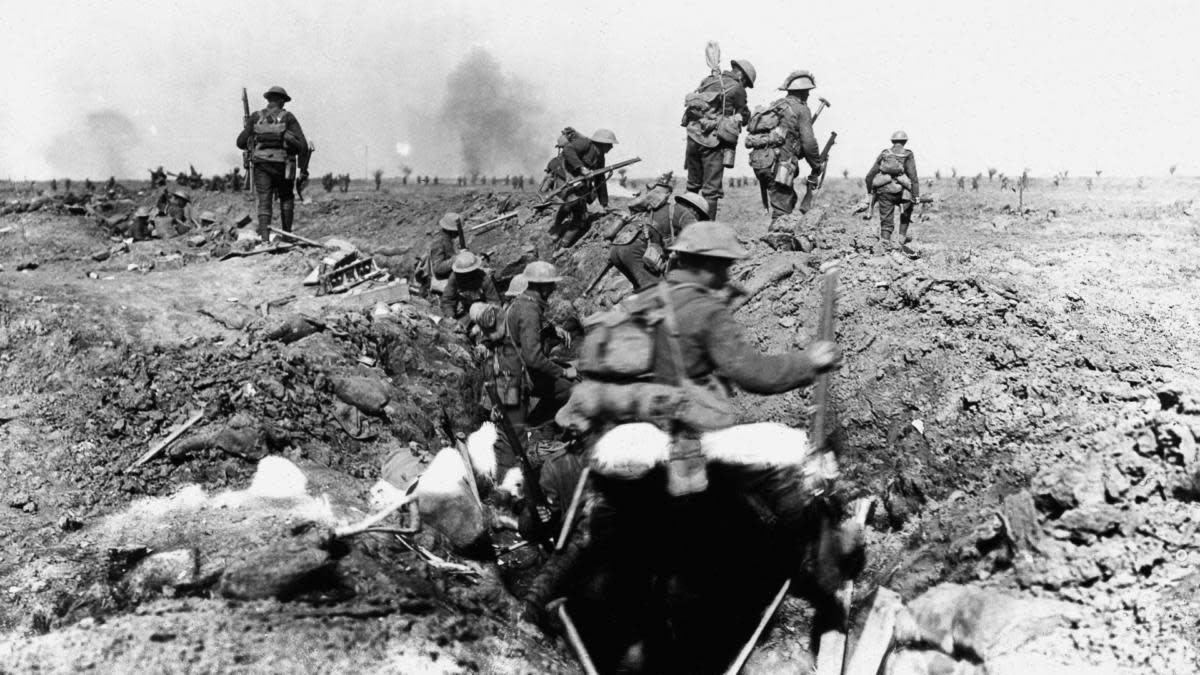In June 28, 1914, the Habsburg arch duke Francis Ferdinand, heir to the throne of Austria-Hungary, and his wife, Sophie Chotek, were assassinated in the streets of Sarajevo, capital of the province of Bosnia, which had been occupied by Austria-Hungary since 1878.
The assassin, Gavrilo Princip (1895-1918), was a Serbian nationalist. The Austro-Hungarian government, alarmed by the ambitions of Serbian nationalists, took the occasion of the assassination to issue a severe ultimatum to Serbia.
The Serbian government’s refusal to accept the ultimatum in its entirety led to an Austrian declaration of war on Serbia on July 28. Within the week, the great states of Europe were engaged in a general war—the Central Powers (Austria-Hungary and Germany, joined by Turkey and, later, Bulgaria) against the Allies (Serbia, Russia, France, and Britain, eventually supported by eighteen other nations).
Princip’s bullet would eventually cost 36 million casualties in killed, missing, and wounded. After the war, and particularly after the failure of the peace settlement and the widespread disillusionment with leaders who apparently had so naively fought a “war to end all wars,” much public debate took place about where the greatest responsibility for the war lay. This debate over the causes of the war became confused with the moral issue of responsibility for the war.

